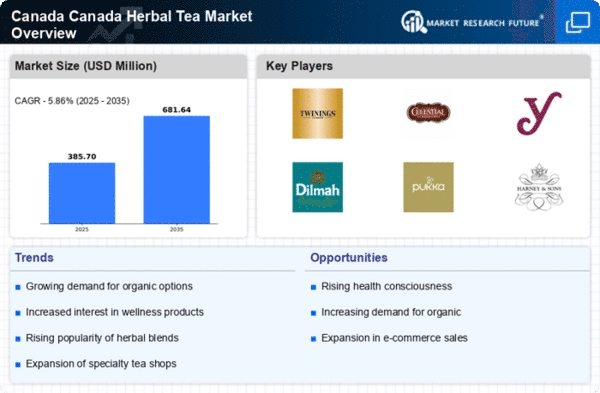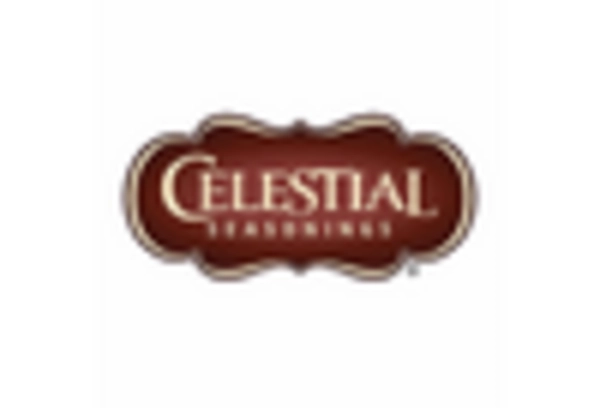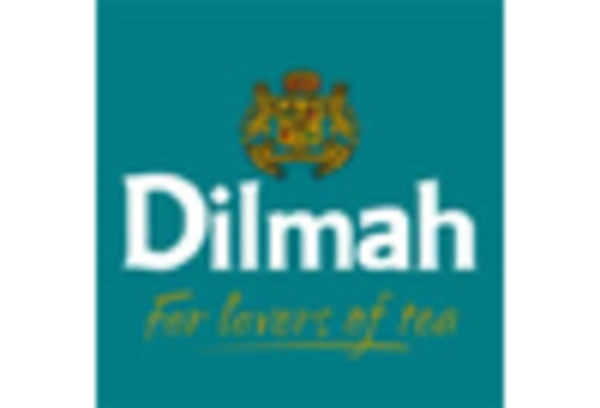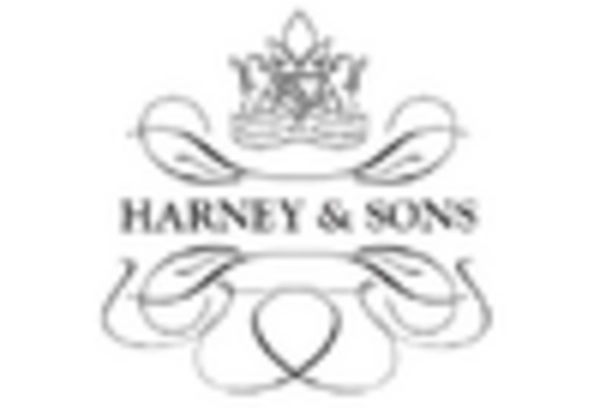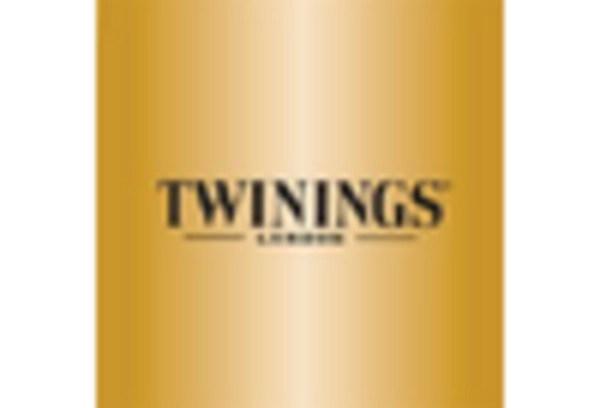Increased Online Retailing
The rise of e-commerce is transforming the way consumers purchase herbal tea in Canada. With the convenience of online shopping, consumers are increasingly turning to digital platforms to explore and buy herbal tea products. Recent statistics indicate that online sales of herbal teas have surged by 25% in the last year, reflecting a broader trend towards online retailing. The herbal tea market is adapting to this shift by enhancing their online presence and offering direct-to-consumer sales. This trend suggests that the market will continue to expand as more consumers embrace the convenience of online shopping, allowing for greater accessibility to a variety of herbal tea options.
Rising Health Consciousness
The increasing awareness of health and wellness among consumers in Canada appears to be a primary driver for the herbal tea market. As individuals seek natural alternatives to traditional beverages, herbal teas are gaining traction due to their perceived health benefits. According to recent data, approximately 60% of Canadians express a preference for beverages that contribute to their overall well-being. This trend is likely to continue, as consumers become more informed about the advantages of herbal ingredients, such as antioxidants and anti-inflammatory properties. The herbal tea market is thus positioned to benefit from this shift towards healthier lifestyle choices, with sales projected to grow by 8% annually as more Canadians incorporate herbal teas into their daily routines.
Innovative Product Offerings
The herbal tea market is experiencing a surge in innovative product offerings, which could significantly impact consumer choices. Companies are increasingly introducing unique blends and flavors, catering to diverse palates and preferences. For instance, the introduction of functional herbal teas, which combine traditional herbs with modern health trends, is gaining popularity. This innovation is reflected in market data, indicating that specialty herbal tea sales have risen by 15% in the past year alone. The herbal tea market is thus evolving, with brands focusing on creativity and quality to attract health-conscious consumers. This trend suggests that the market will continue to expand as new products are developed to meet the demands of an increasingly discerning customer base.
Cultural Influences and Trends
Cultural influences play a significant role in shaping consumer preferences within the herbal tea market. As Canada becomes increasingly multicultural, the demand for diverse herbal tea options is on the rise. Various cultural traditions emphasize the use of herbal teas for health and wellness, which is likely to drive interest in these products. Market data suggests that herbal teas inspired by global flavors are gaining popularity, with sales of such products increasing by 20% over the past year. The herbal tea market is thus poised to benefit from this cultural diversity, as brands introduce new flavors and blends that resonate with a broader audience, potentially leading to increased market share.
Growing Demand for Natural Ingredients
The shift towards natural and organic ingredients is a notable driver for the herbal tea market in Canada. Consumers are becoming more discerning about the products they consume, often opting for those that are free from artificial additives and preservatives. This trend is supported by data indicating that over 70% of Canadians prefer organic products, which has led to a rise in the availability of organic herbal teas. The herbal tea market is likely to see continued growth as brands respond to this demand by sourcing high-quality, organic ingredients. This focus on natural products not only aligns with consumer preferences but also enhances the overall appeal of herbal teas as a healthier beverage option.


